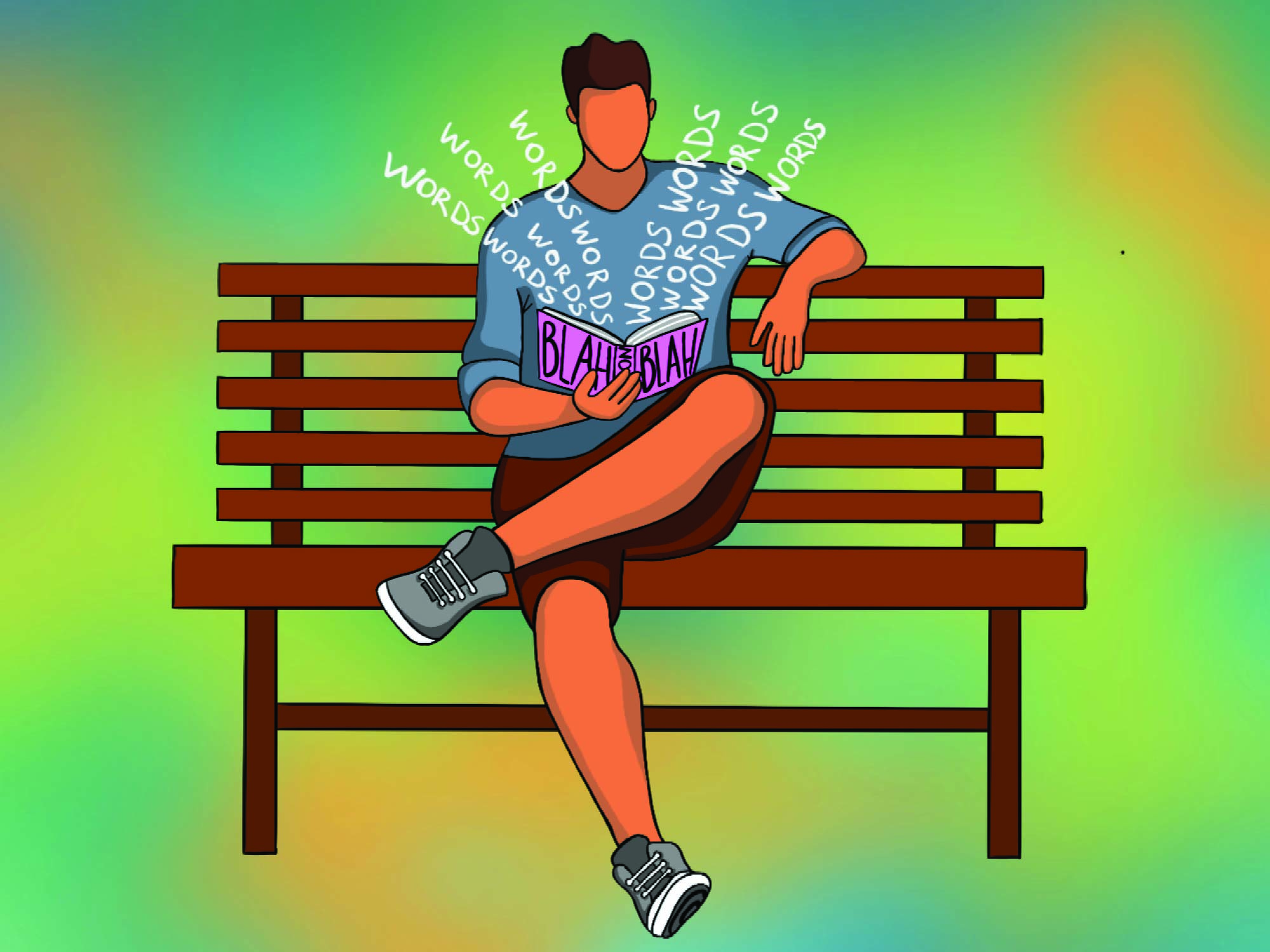I love aesthetic shots. Sitting at a café, I’ll purposely tilt my book next to my cappuccino to get the perfect photo.
Yet recently, a nagging thought occurred to me — what if people think I don’t actually read these books? Books are no longer just books — they are social currency and aesthetic markers.

People don’t just read to read anymore — they read to perform. So unless you follow me on Goodreads and know I’m on track with my reading challenge, how could anyone verify that I am reading “Notes from Underground.”
This shift manifests in two distinct yet equally concerning ways: the pseudo-intellectual reader and the hyper-commercialized BookTok reader.
On one end, we have the cool intellectuals who parade around with tormented, existential authors in an attempt to signal depth. They aren’t just reading “The Bell Jar” — they’re becoming Sylvia Plath’s “thought daughter.”
They see themselves in the fig tree analogy, not because they truly grapple with the weight of choice and regret, but because they want to be perceived as someone who does.
If you remember anything from middle school, you probably know that being a bookworm wasn’t cool — well, it still isn’t. You must be a literary it-girl for reading to be considered cool, by either wearing a ‘reading is hot’ t-shirt or insisting that no one understands you quite like Ottessa Moshfegh in “My Year of Rest and Relaxation.”
Pseudo-intellectualism is a major player in this phenomenon. There is an entire subculture that treats books as a badge of honor rather than a source of knowledge.
It’s about name-dropping obscure philosophers without engaging with their ideas and carrying around heavy novels as an aesthetic choice rather than reading them. Many walk around with Kafka in their bags, not because they wrestle with existential dread but because it signals intellect.
To be a good pseudo-intellectual, you must underline, annotate aggressively and construct an intellectual persona that suggests profoundness rather than actually engaging with the text.
I’ll give you a bonus point if you romanticize suffering rather than understanding it.
The pseudo-intellectual doesn’t want to read — they want to be seen as the kind of person who reads. Even celebrities have jumped on this trend, launching book clubs that often feel like branding exercises rather than genuine literary communities.
The result of this is that books become another extension of curated personal aesthetics rather than a medium for genuine thought and discussion.
On the other end, we have the BookTok phenomenon. I should, in theory, be the target audience. I love books, and I appreciate a well-curated bookshelf. Yet, I can’t relate to the culture that has formed around reading online.
Here, books are stripped of their literary value and turned into mass-market commodities. The most popular titles often cater to short attention spans, offering basic, trope-heavy stories that lack substance. Readers openly admit to skimming pages and avoiding books with “big words.”
Even worse, books are often selected based on aesthetic appeal — romanticized covers, dark academia vibes, or whatever aligns with an Instagram-able lifestyle. Books almost seem like collectible objects.
Then there’s the issue of content. Many of these widely promoted books glorify unhealthy dynamics — romanticizing toxic relationships under the guise of “passionate love” or indulging in narratives that lack emotional depth. Romantic relationships that thrive on manipulation and obsession are passed off as aspirational, while female protagonists are often devoid of personality beyond their ability to be desired.
These books rarely challenge readers or present nuanced, thought-provoking themes, instead relying on repetitive tropes and exaggerated melodrama.
There’s also a resistance to complexity. If a book requires too much thought, it is dismissed. The irony is that while this culture claims to love books, it often rejects what makes books powerful — the slow unfolding of ideas and emotions.
Now, I’m not here to shame people for reading what they enjoy. I don’t think everyone needs to read all the classics. Reading at all is a wonderful thing—but there are limits.
At its core, this shift isn’t about literature — it’s about looking like a reader. Books have become an accessory, a personality trait and a status symbol. As a result, people are reading more visibly than ever.
The joy of getting lost in a story, of struggling with complex ideas and of truly reading seems to be fading.
Perhaps it’s time to ask: Do we still love books, or do we just love the way they make us look?